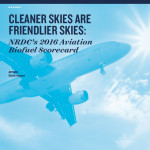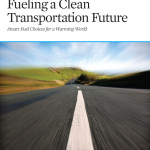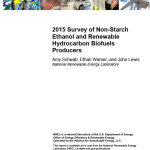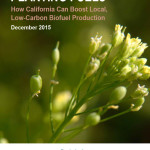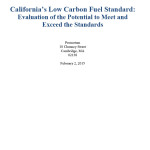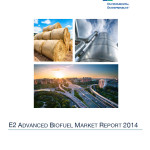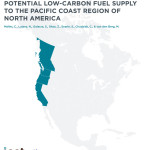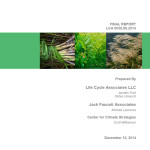Summer Driving Season Begins: California Climate Law Helping Cut Fuel Bills and Health Costs
Simon Mui
Posted May 22, 2014
Californians hitting the road this Memorial Day weekend will be able to go even farther on their gas money this year, thanks in part to implementation of key measures under California’s clean energy and climate law, AB32, including the Clean Car Standards, Low Carbon Fuel Standard, and Cap and Trade.
Fuel economy of new automobiles is at a record high, with today’s new automobiles able to go almost 25% farther on a gallon of gasoline compared to those sold just ten years ago, according to the EPA. With the summer driving season approaching, the promises of AB32 already are being delivered in the form of more fuel-efficient vehicles, growth in the supplies of lower-carbon alternative fuels, and – for those staying home – communities with more walkable and transit oriented streets. That ultimately means less money spent at the gasoline pump, as I described here.
Even better, there’s now additional evidence that AB32 will not only cut carbon pollution, but help make the air we breathe healthier, ultimately reducing medical bills at the doctor’s office.
The Environmental Defense Fund (EDF) and American Lung Association (ALA) released a report yesterday showing that the state’s Low Carbon Fuel Standard together with Cap-and-Trade – two key measures under AB32 – will result in cleaner fuels, less pollution, and healthier communities. Overall, the report shows these programs will result in cumulative societal savings of over $10 billion by 2020 in avoided health care costs, improved energy security and reduced social costs of carbon. By 2025, those savings are expected to have more than doubled to $23 billion. The study estimates that by 2025 the reduction in air pollution alone will prevent 600 heart attacks, 880 premature deaths, 38,000 asthma attacks, and almost 75,000 lost work days.
That report also found that by 2025, these two measures AB32 will help avoid 4.5 billion gallons of gasoline and diesel consumption every year. The EDF/ALA study echoes that of Mills College economists Jasmin Ansar and Roger Sparks in showing that there are large spillover benefits from AB32 programs. In the latter study, the LCFS program was found to increase competition and diversification in our fuels market – beyond just oil – helping contribute to downward pressure on fuel prices while also decreasing the large variability (or fluctuations) we see in prices.
Oil industry ignores progress
Despite these signs of great progress, the oil industry is still ignoring the benefits of AB32 and policies like the Low Carbon Fuel Standard, claiming they will actually cost Californians more in the long run, despite the trends showing the exact opposite: AB32 is significantly reducing consumer fuel expenditures and providing enormous societal benefits.
George Slover, a senior policy counsel at Consumers Union, the public policy and action division of Consumer Reports, writes that “oil interests go too far when they claim AB32 will wreak havoc on the state’s economy.” Slover cites that California consumers “will benefit from policies like the LCFS. They will get more clean fuel options and less reliance on oil. In the long run, these trends will ease upward pressure on gas prices. And they will hasten the day when there is real competition and genuine consumer choice in fuels and transportation options – the day when petroleum is no longer the only game in town.”
Memorial Day: remembering the past, celebrating the present, and protecting the future
Like so many others this weekend, I’ll be spending this weekend with family and friends outdoors. Like our parents before us, many of us work hard today to also ensure our children can enjoy the “fruits of our labor” and have even better opportunities going forward.
But as I noted already, the recent release of the U.S. National Climate Assessment demonstrates that our present and future are being put in jeopardy because of carbon pollution, with the climate change impacts already leading to more intense heat waves, more destructive floods and storms, and rising sea levels. We must put the brakes on carbon pollution to stave off the worse effects.
Fortunately, here in California we already started meeting that challenge over ten years ago with the first-in-the-world enactment of tailpipe standards for cars and trucks (AB 1493, Pavley). Today, we are nearly halfway to meeting our 2020 reduction targets through a larger, more comprehensive set of climate measures under AB32. California’s economy is growing, we are cutting carbon pollution, and we are generating enormous benefits. Yesterday’s release of the EDF/ALAC study demonstrates just how large the benefits are from reducing carbon pollution, in contrast to oil industry reports looking only at the industry costs of taking action.
This Memorial Day weekend, hopefully we’ll all remember the investments that have been made by the generations before us to secure a brighter future. We can certainly do the same.





